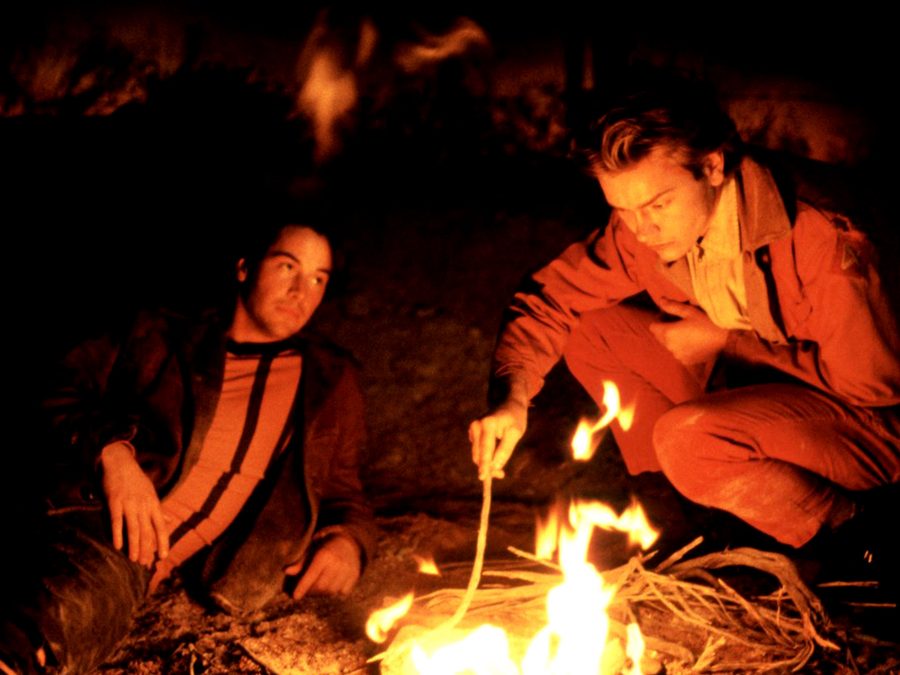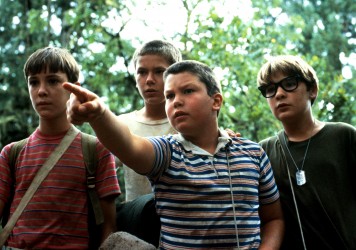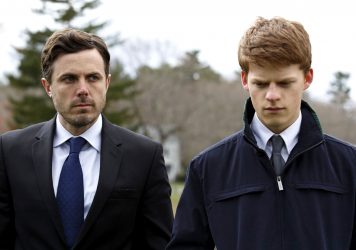
I live as a straight man with rare flashes of homosexual longing. I’ve never admitted that publicly before, and even typing it leaves me anxious. But in the hands of Gus Van Sant’s My Own Private Idaho, the director’s third and most emotionally complex film, I am among friends – it is as murky about its characters’ sexualities as we all are in our most unprotected moments.
I’ve enjoyed sexual relationships with female partners. As have Mike (River Phoenix) and Scott (Keanu Reeves), two young hustlers living on the streets of Portland, Oregon. One of the first scenes of the film features Mike mid-orgasm receiving fellatio from a rotund flap of a man; in a following monologue, Scott admits he’s more than willing to sell his body, even posing for the occasional magazine cover when he needs the money.
Yet neither of them is explicitly gay or straight. Their mantra is that if it can earn them extra cash, they’ll do it. “It’s when you start doing stuff for free,” Scotts venomously spits, ”that you start to grow wings… You grow wings and become a fairy.”
What’s quite clear, though, is that Scott never really needed the money. At the start of the film, he’s a week away from inheriting a fortune from his ailing father. So what are we to make of his relationship with Bob, a veteran hustler who returns to Portland and calls Scott his “true son”? They’re never shown sleeping together, but when they share a kiss, Scott doesn’t flinch.
The first time I watched My Own Private Idaho, a scene midway through the film cut me deep: Mike and Scott sit beside an open fire together, with Mike slowly mustering the courage to tell Scott he’d like to have a “talk” with him. “I really want to kiss you man,” he can barely say. Scott isn’t receptive; “Two men can’t love each other,” he says, leaving Mike quietly drowning in dismissal.
This moment is equal parts tremendous and uncanny. I can’t count the number of muggy nighttime chats I’ve had with my closest male friends, bathed in porch light as we trade our most restless fears. It’s an reverential feeling. I want to break script and move a bit further, but the nerve is never within reach. I keep the wheels of conversation spinning, dreading the moment silence falls and the gravity building between us begins speaking for itself; I never allow it to, and I leave wondering if maybe that was best for all parties.

What those scenarios mean is never quite clear. Do I want sex with these men? Or am I so swept up in the frightening intensity of our lifelong gratitude for each other that suddenly, words alone don’t feel explicit enough? In My Own Private Idaho, Van Sant seems to think one may be an expression of the other. He sketches a world where sexuality is less a characteristic and more a tool for getting by. On the Bret Easton Ellis Podcast some years ago, Van Sant even posited that Mike and Scott might not have sexualities in the conventional sense. Do I?
My attraction to men is not sexual per se — that’s reserved for women — and it may not be literally homosexual either. It’s a chaste passion, but it’s a passion pure and true. Being honest, I’m at a loss for how best to describe it. ‘Bisexual’ feels too strong a word, too definitive. Perhaps I’m just queasily romantic towards all humankind.
I wonder if Mike and Scott have similar attitudes about their own male relationships. Both have others of their own sex they’re in various stages of love with, platonic or otherwise, but only because they act as escapes from the circumstances of their lives. Scott goes through life running from a stiff white-collar world by which he feels contaminated. Mike seems contaminated by life itself. He’s regularly the victim of narcoleptic spells that seem less like afflictions than biochemical interventions. In fight-or-flight stress, his body makes up his mind for him, settling for a deep sleep, where dreams of his mother embrace him and whisk him away from the realities of his numb, compass-free existence.
Later, Scott and Mike go on a trip to find Mike’s mother. There Scott meets a young Italian girl named Carmela (Chiara Caselli), and the two embark on a sexual relationship. Mike’s face looks more betrayed with each following scene. By having sex with a girl, he seems to prove that their three-year life together was not a meaningful endurance but rather a curious excursion into exotica.
Are my thoughts excursions? I used to think it mattered, but as usual I stand corrected by experience. All of us, beyond gender and preference, are searching desperately for any people extraordinary enough to return our crooked world, as Paul Thomas Anderson once phrased it, “…back to its inherent state of perfect.” They may identify as men, women, both, or neither; friends, lovers, or family. But they’re out there, and once you find them, their assigned drawer is up to you, and there are no wrong choices.
These feelings remain hazy to me, and they may not clear up anytime soon. I’m not sure Scott and Mike figured things out either, not completely. In ways I can’t reveal, life intervened before they had a chance to. But if I learned anything following their dreamlike drift, it’s that love is not for categorising; it’s for taking in. That’s the luxury I have that Mike was denied – I’ll never be without people to share in my love, and so regardless of where I end up, my own private Idaho will never be far from reach.
Published 25 Feb 2017

Inspired by Todd Haynes’ Carol, explore our potted history of great films that depict gay lives on screen.

By Tom Bond
Rob Reiner’s touching drama sees four friends say goodbye to the safety and stability of childhood.

A Massachusetts native offers a candidly personal take on Manchester by the Sea.